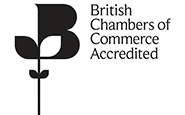By Manila Times
THE Bureau of Customs (BoC) has issued the regulations stating the conditions for the special tariffs under the Regional Comprehensive Economic Partnership (RCEP).
Imported commodities from any of the 15 RCEP member-countries are the only ones allowed to claim the favorable tariff rates under the pact, according to Customs Memorandum Order (CMO) 12-2023 dated May 26, 2023.
Issued by Customs Commissioner Bienvenido Rubio, CMO 12-2023 went into force on Friday, June 2, 2023. It established defined processes for the issuance and acceptance of the certificate of origin.
According to the bureau, certificates of origin are required to accompany commodities being transferred between member- nations under the RCEP agreement.
“This official document attests to the country of origin of the goods, allowing customs authorities, importers and exporters to monitor the movement of goods within the RCEP trading bloc,” the BoC said in a statement.
To qualify for RCEP tariff rates, the BoC said that importers must receive this certification, as well as a statement of origin from qualified exporters in the Philippines, as stipulated by the bureau.
The BoC has entrusted its Export Coordination Division (ECD) with scrutinizing all certificates of origin and applications for approved exporter status that have been obtained.
“ECD shall carry out verifications of the originating status of the goods upon request of the RCEP importing party or based on risk analysis criteria. Verification can be made based on documents requested from the exporter or producer or by inspections at the exporter’s or producer’s premises,” the CMO stated.
The BoC, however, stated that the final determination on the rate of tax will be dependent on the review of the importers’ supplied documentation.
Exporters’ requirements
Exporters, on the other hand, must submit an application to the ECD for the granting of an RCEP certification of origin.
Customs said that the application must contain all required supporting documentation, such as an export declaration, commercial invoice, bill of landing/airway bill, and any other applicable permissions.
It added that the Philippines kept its existing favorable tariff rates for 98.1 percent of the 1,718 agricultural tariff lines and 82.7 percent of the 8,102 industrial tariff lines under the trade agreement.
Out of the 1,685 agricultural tariff lines that will be retained at their current rates, 1,426 will be kept at a zero rate, according to the BoC while 154 will be charged at their current most favored nation rates and will thus be excluded from any tariff reductions.
“In cases where the RCEP preferential tariff rate is higher than the applied rate at the time of importation, the importer shall be allowed to apply for a refund of any excess duties and taxes paid for originating goods,” the BoC said.
Britcham welcomes Maharlika passage
Meanwhile, the British Chamber of Commerce of the Philippines (BritCham) lauded the passing of Senate Bill 2020 or the “Maharlika Investment Fund (MIF) Act of 2023” as this will help attract more foreign direct investments, most especially to develop the country’s infrastructures.
“We, as the BritCham, support the developments [of the bill] for the infrastructure… we are looking at this as part of overall further liberalization of the Philippine economy,” BritCham Executive Director Chris Nelson told The Manila Times in a phone interview on Friday.
“We welcome any investments, we look forward to further economic liberalization [most especially] the support this fund can give, and to develop an increase of foreign direct investments,” he added.
The chamber supports the bill as it will also help to address food security of the country.
“It is a good sign for the Philippines [apart from the development of] infrastructure, also in agriculture — helping in terms of food supply and security,” he said.
Philippine Chamber of Commerce and Industry President George Barcelon also lauded the passage of the MIF measure at the Senate, saying this will help generate more funds to help the health and education sectors of the country.
“This is important also on the socio-services because the main objective of this fund is to generate more funds to help the prior[ity] areas such as health and education,” he said.
He also lauded the safeguard measures of the MIF measure.
“The makeup of the Board of [Directors] is important. [It signifies] representation. [Like] how many will be represented by the private sector of finance, among others,” Barcelon said.
View the original article here.


